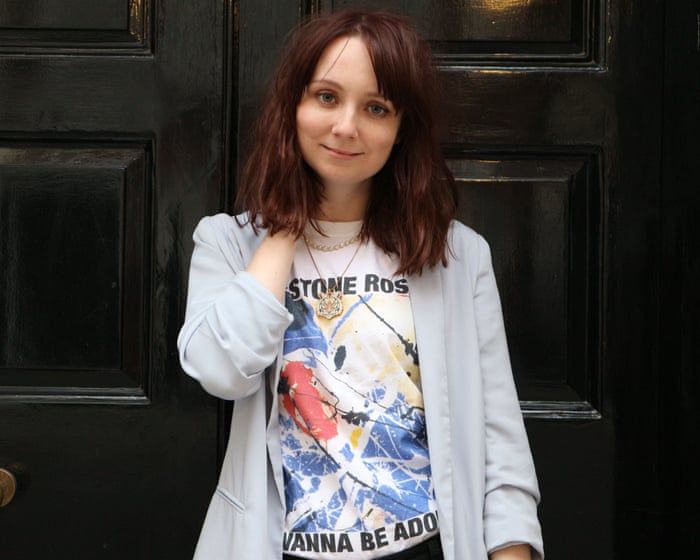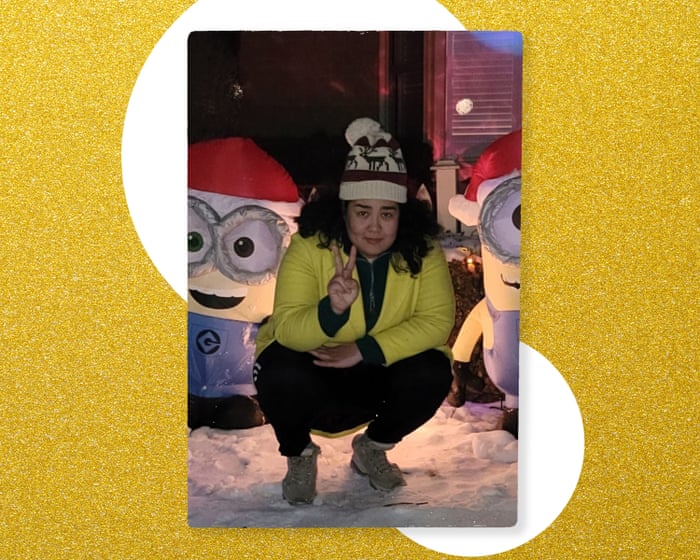Ho sempre avuto difficoltà con le conversazioni leggere. Nella migliore delle ipotesi, mi annoiavano; nella peggiore, mi mettevano ansia. Perché un collega avrebbe dovuto segnalare la pioggia quando potevo vederla da solo? Come potevo rispondere in poche parole al "Come sta oggi?" del postino?
Durante i miei anni nell'editoria, il networking era fondamentale. Riuscivo a parlare facilmente di autori, tirature o budget di marketing. Ma chiedere come qualcuno avesse raggiunto un evento o dove avesse parcheggiato? Non avevo alcun interesse per quegli argomenti. Eppure, quelle erano le conversazioni che tutti sembravano fare. Mentre gli altri apparivano a proprio agio, io mi sentivo teso e fuori posto.
Ogni interazione sembrava un test che stavo fallendo. Non conoscevo le regole: quanto doveva durare una conversazione leggera? Dovevo essere sincero o divertente? Temevo che le mie risposte fossero noiose o troppo intense, e le mie domande suonassero come un interrogatorio.
Quando iniziai a lavorare come freelance, mi esercitai nelle chiacchiere come un attore che impara la parte, sforzandomi di sembrare calmo e sicuro. A poco a poco, mi sentii più a mio agio con questa recita, accettando che questo disagio fosse semplicemente parte della vita adulta.
Poi arrivò il lockdown. Per due anni, non dovetti recitare. Con tutti che si sentivano più vulnerabili, le conversazioni sembravano più profonde e autentiche. Raramente parlavo con estranei e non dovevo nemmeno indossare i pantaloni!
Ma quando tutto riaprì, tornare a chiacchierare di traffico e meteo sembrò una tortura psicologica. Le mie abilità sociali erano arrugginite e, dopo aver indossato le mascherine così a lungo, avevo dimenticato come mettere quella sociale.
Tutto cambiò questo maggio a una mostra d'arte di un'amica. Ispirata, decisi di provare un nuovo approccio, ricordandomi del consiglio di Wayne Dyer: "Cambia il modo in cui guardi le cose, e le cose che guardi cambiano". Invece di costringermi in uno stampo che detestavo, ne creai uno nuovo.
Chiesi alla prima persona che incontrai, una fotografa freelance: "Qual è il tuo segno zodiacale?". Sbatté le palpebre, sembrò piacevolmente sorpresa e disse: "Acquario". Chiacchierammo piacevolmente per dieci minuti. Con la persona successiva, chiesi del suo insegnante d'arte a scuola. Alla fine della serata, avevo avuto diverse conversazioni divertenti e coinvolgenti.
Rimanevano 27 giorni a maggio, così continuai il mio esperimento. Le mie regole erano semplici: indirizzare educatamente le conversazioni lontano da benessere, meteo, viaggi o voti scolastici dei figli, e introdurre argomenti che mi interessavano veramente.
Quando un barista mi chiese come stessi godendo il sole, spostai la conversazione su: "Mi piace la primavera, ma l'autunno è la mia stagione preferita. E a te?". A un evento per scrittori, quando qualcuno menzionò che i suoi figli non andavano a scuola, chiesi quale fosse stata la sua materia preferita a scuola.
I risultati furono sorprendenti. La maggior parte delle persone non solo giocò along, ma sembrò sollevata. Non ero l'unico a trovare le chiacchiere forzate e imbarazzanti. Le conversazioni divennero imprevedibili e, cosa più importante, autentiche. Scoprii del secondo lavoro come drag artist di un barista, della passione per l'apicoltura di un laureato e del romanzo scritto da un'infermiera psichiatrica.
Certo, ci furono alcuni momenti imbarazzanti. Alcune persone non capivano, dandomi sguardi perplessi prima di andarsene. Qualcuno era sospettoso. Ma non la presi sul personale: la maggior parte accolse positivamente il cambiamento.
Iscriviti a Well Actually
Newsletter settimanale gratuita
Ricevi consigli pratici, approfondimenti di esperti e risposte alle tue domande su come vivere una buona vita.
Inserisci il tuo indirizzo email
Iscriviti
Informativa sulla privacy: Le nostre newsletter possono includere informazioni su enti benefici, pubblicità online e contenuti supportati da terze parti. Se non hai un account, ne creeremo uno ospite per te su theguardian.com per consegnare la newsletter. Potrai completare la registrazione in qualsiasi momento. Per dettagli su come gestiamo i tuoi dati, consulta la nostra Informativa sulla privacy. Utilizziamo Google reCaptcha per la sicurezza del sito web, e si applicano le Norme sulla privacy e i Termini di servizio di Google.
Promozione post-newsletter
Mentre il mese volgeva al termine, mi resi conto che le chiacchiere, nonostante i loro fastidi, servono a uno scopo. Sono un gateway verso l'interazione e la connessione che gli esseri umani sono naturalmente spinti a cercare.
Ora, le conversazioni leggere non mi mettono più ansia. Invece di sentirmi intimidito, decido come affrontarle senza stressarmi per farle perfettamente. Prendermi una pausa per un mese mi ha aiutato a vedere come tutti seguiamo un copione simile per costruire un terreno comune. Ma questo non significa che non si possa riscrivere quel copione per essere più autentici e avere conversazioni più coinvolgenti.
"Fk, I Think I’m Dying" di Claire Eastham è pubblicato da Penguin e costa £9.99.
Domande Frequenti
Ecco un elenco di FAQ utili e concise sull'esperienza di abbandonare le chiacchiere, pensate per rispondere a domande da chi è solo curioso a chi è pronto a provare personalmente.
Domande di base e definizioni
1. Cosa si intende esattamente per small talk?
Le chiacchiere sono conversazioni leggere e informali su argomenti non importanti o non controversi, come il meteo, lo sport o commenti generici sulla giornata. Spesso servono a riempire i silenzi o per educazione.
2. Cosa intendi con "smettere con le chiacchiere"? Significa che smetti semplicemente di parlare con le persone?
No, affatto. Significa smettere di iniziare o partecipare a conversazioni superficiali e automatiche. In alternativa, si può accettare un silenzio confortevole o orientare la conversazione verso argomenti più significativi e genuini.
3. Che tipo di conversazioni hai avuto invece?
Invece di chiedere "Come stai?" aspettandosi un "Bene" di risposta, potresti chiedere "Qual è stata la parte più interessante della tua settimana?" o condividere un'osservazione genuina o una curiosità personale.
Vantaggi e risultati
4. Perché il mondo sembrerebbe più vibrante smettendo di fare small talk?
Quando smetti di usare energia mentale per chiacchiere automatiche, diventi più presente e osservatore. Inizi a notare dettagli nell'ambiente, ad ascoltare più attentamente e a interagire con le persone e il mondo a un livello più profondo.
5. Quali sono i principali vantaggi che hai riscontrato?
- Connessioni più profonde: le conversazioni sono diventate più autentiche e hanno portato a legami più forti.
- Meno ansia sociale: la pressione di dover costantemente recitare o riempire i silenzi è svanita.
- Maggiore autoconsapevolezza: ho imparato di più su ciò che penso e sento veramente.
- Migliore ascolto: sono diventato un ascoltatore molto più coinvolto e presente.
6. Le persone pensavano che fossi scortese o antipatico?
A volte, all'inizio. Le persone abituate al vecchio schema di chiacchiere occasionalmente erano colte alla sprovvista. Tuttavia, quando si rendevano conto che ero più presente e facevo domande più ponderate, di solito apprezzavano il cambiamento.
Problemi e sfide comuni
7. Qual era la parte più difficile di questa esperienza?
L'imbarazzo iniziale nelle situazioni sociali in cui le chiacchiere sono la norma, come in ascensore o all'inizio di una riunione di lavoro. Ci vuole pratica per sentirsi a proprio agio con il silenzio.
8. Le chiacchiere non sono necessarie per rompere il ghiaccio?
Possono esserlo, ma non sono l'unico modo.



